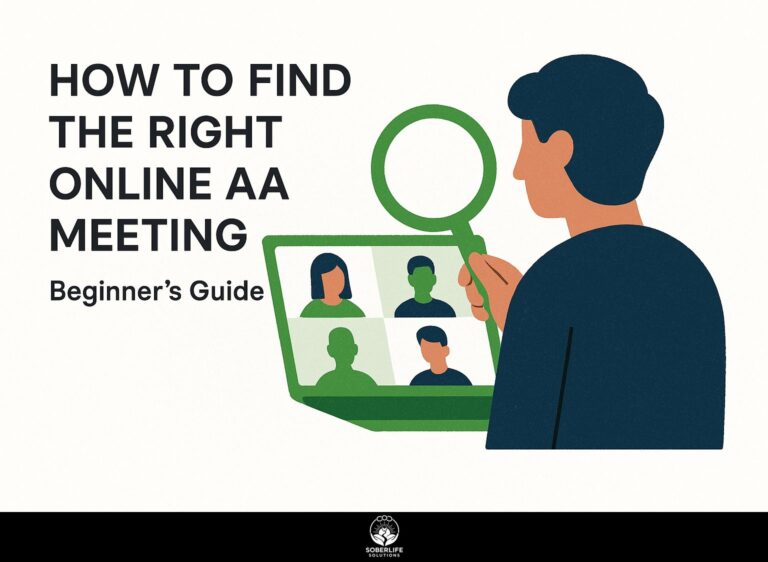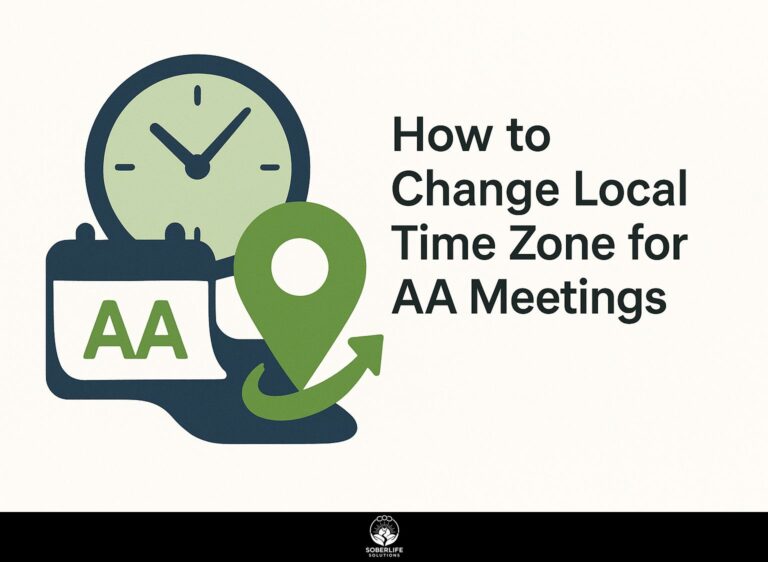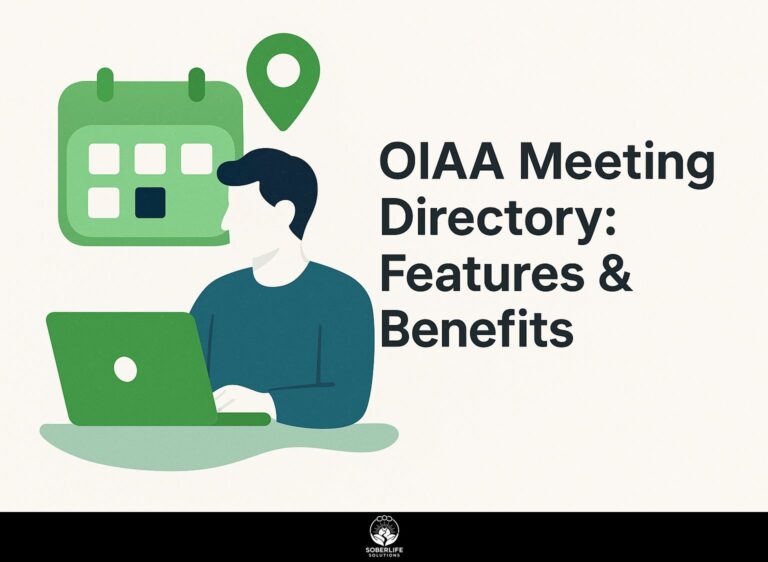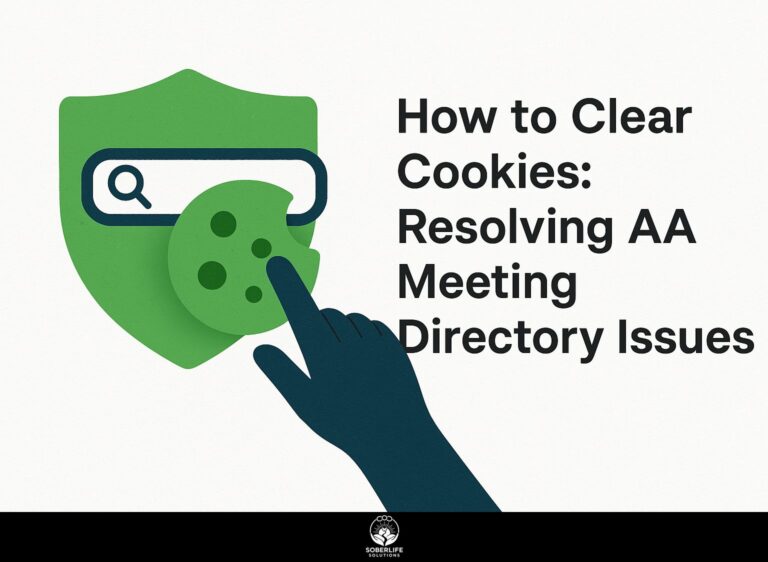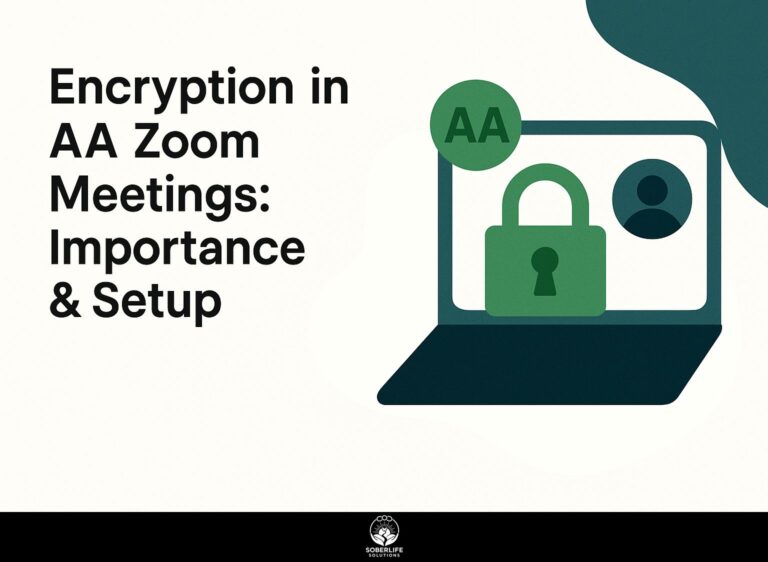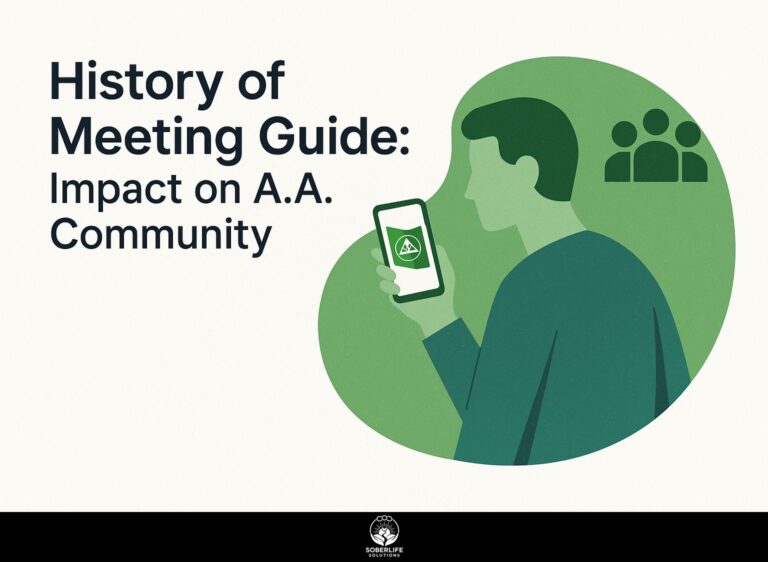Anonymity in AA: Importance, Tips, and Best Practices
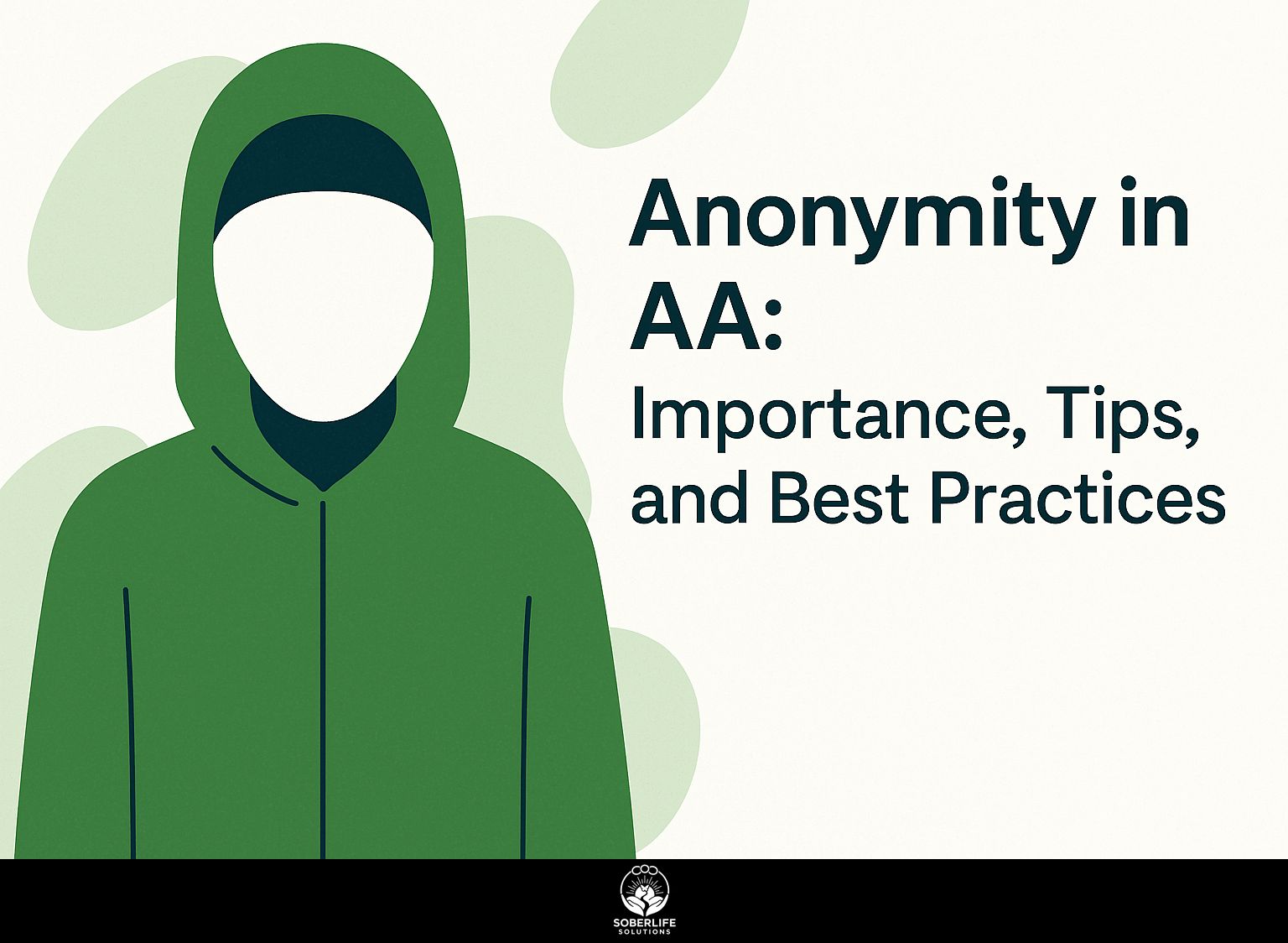
Anonymity in Alcoholics Anonymous (AA) is important for creating a safe place where people can openly face alcohol use disorder. Founded by Bill Wilson and Bob Smith, AA focuses on keeping members’ identities private, so they can talk about their recovery experiences without worry. In this article, we’ll discuss why anonymity matters, clear up common misunderstandings, and give useful advice for safeguarding privacy-helping everyone feel at ease and backed up on their road to recovery.
Key Takeaways:
Definition and Purpose
Anonymity in AA means members’ names are kept private, which supports their personal safety and responsibility during their recovery process.
This rule safeguards each person, creating a friendly atmosphere and promoting honest communication. When members feel safe and secure in their anonymity, they are more likely to share their experiences and challenges without fear of judgment.
This aligns with the 11th Tradition of AA, which states, “Our public relations policy is based on attraction rather than promotion; we need always maintain personal anonymity at the level of press, radio, and film.” This commitment helps maintain the sanctity of the fellowship, ensuring that the focus remains on recovery and mutual support. As Verywell Mind discusses in their study of Tradition 11, this anonymity policy is crucial to fostering an environment where members can openly share, thus reinforcing the community’s core values and principles.
Historical Context
The concept of anonymity was pioneered by Bill Wilson and Bob Smith in the early days of AA, establishing it as a core value in the Twelve Traditions.
This principle, established during the first meetings in Akron, Ohio, helped shield participants from public judgment and personal vulnerability, creating a secure space for open discussion.
Anonymity encourages open dialogue, as participants feel secure discussing their vulnerabilities without fear of judgment. Today, it reinforces the bond among members, creating a culture where honesty is paramount.
Groups often emphasize this in meetings, reminding attendees that their identities and experiences remain confidential. By adhering to this foundation, AA maintains its focus on collective healing rather than individual promotion. This foundational approach is further explored in a comprehensive discussion on Quora, which delves into the history and intentions of AA.
The Importance of Anonymity
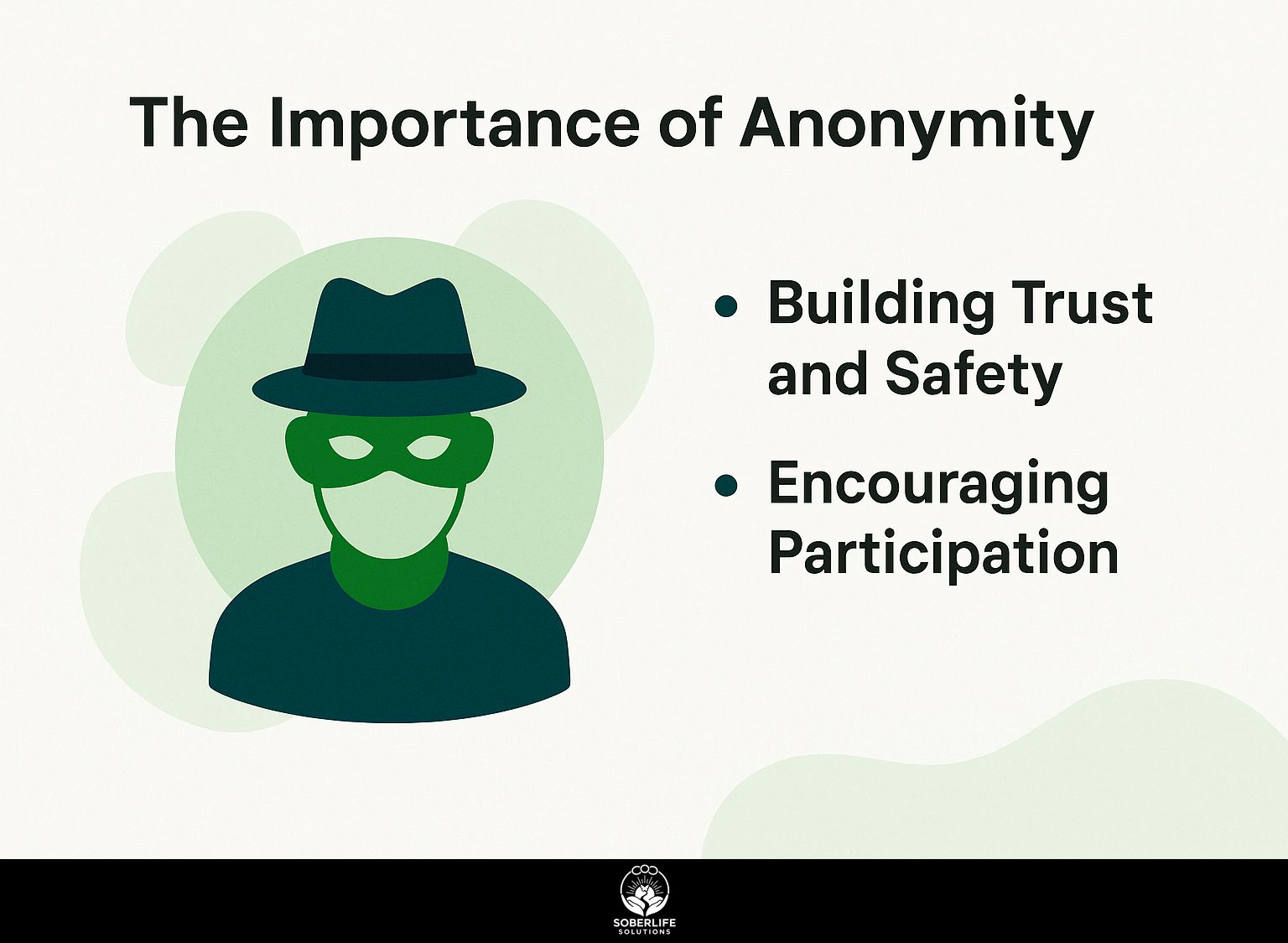
Anonymity is important in AA because it helps create trust and emotional security among members, which is necessary for creating a supportive group for recovery. For a deeper understanding of how these principles are maintained, you can explore the guidelines and confidentiality measures in place.
Building Trust and Safety
Anonymity builds trust by guaranteeing members that what they share will stay private, which increases the group’s sense of security.
This safety encourages open dialogue, especially in group discussions focused on personal challenges, such as addiction recovery or mental health.
For example, members may share their struggles with self-esteem or coping mechanisms, knowing their identities won’t be revealed.
Tools like Zoom or Slack can facilitate these discussions, enabling participants to join without disclosing personal details.
Setting basic rules that emphasize respect and privacy builds trust, encouraging members to participate honestly and help each other.
Encouraging Participation
Anonymity encourages participation by providing a safe space for sharing, particularly in open and closed AA meetings where members can connect authentically.
Research indicates that participation rates in meetings can rise by up to 60% when anonymity is assured. For instance, in closed meetings, where only members can attend, individuals often report feeling more comfortable sharing personal stories.
In contrast, open meetings might have a slightly lower engagement rate (around 40%) due to outside observers. Encouraging participants to keep discussions private, such as reminding them not to talk about stories outside the meeting, can make people more comfortable sharing. This helps create a space where people feel genuinely listened to. This aligns with findings from Psychological Science, which suggests that anonymity significantly impacts behavior. To further enhance anonymity and comfort, some have turned to [virtual recovery groups](https://soberlifesolutions.com/2025/07/11/virtual-recovery-groups-trending/), which offer similar support dynamics online.
Common Misconceptions
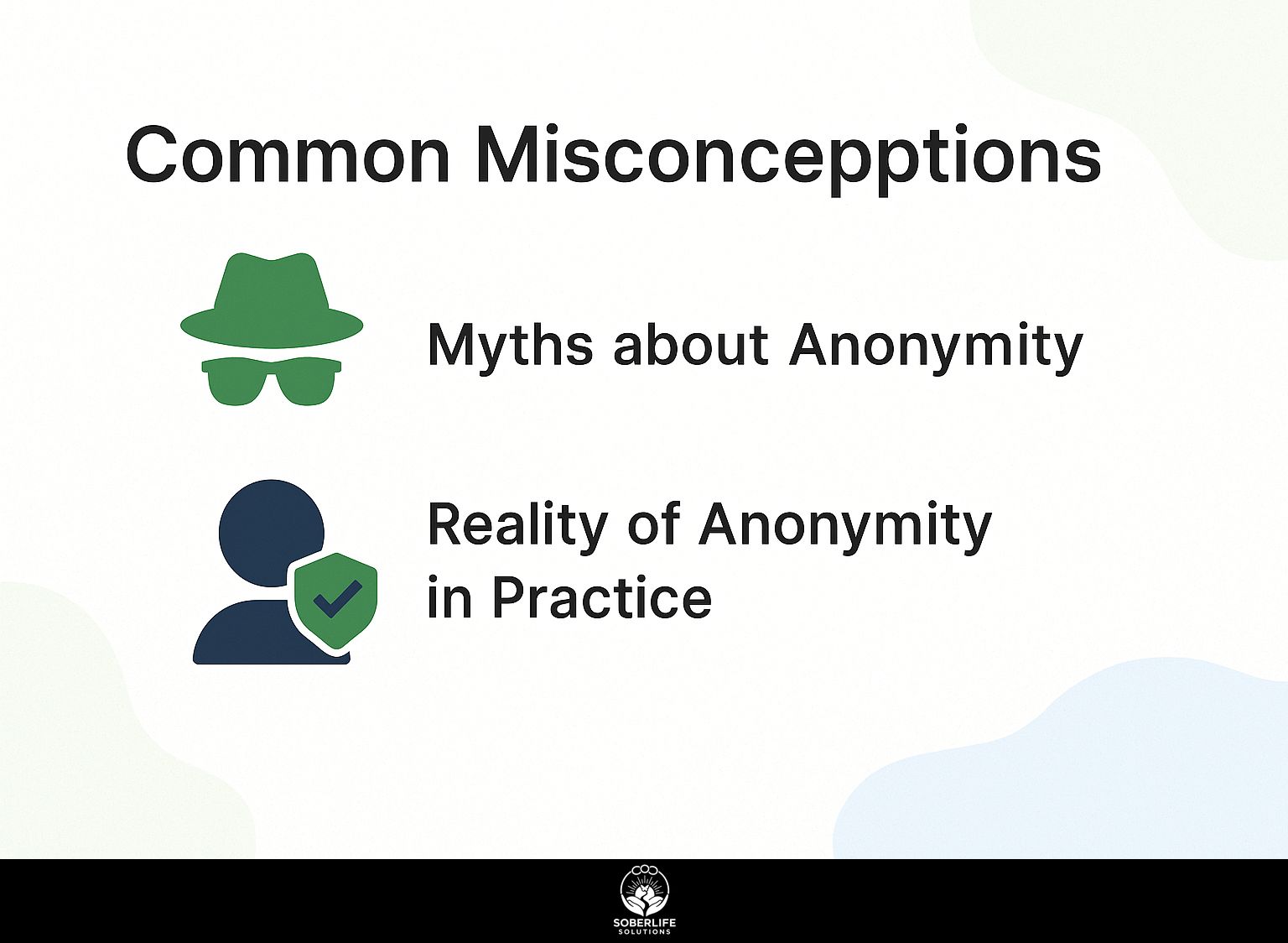
Although anonymity is important in AA, there are many wrong ideas about it that cause confusion about its purpose and effectiveness.
Myths about Anonymity
One prevalent myth is that anonymity protects members from scrutiny, which can inadvertently reinforce stigma around alcohol use disorder.
In reality, anonymity serves a different purpose. It lets people talk freely about their problems without worrying about being judged, creating a safe place for healing.
For instance, Alcoholics Anonymous (AA) emphasizes that while members may remain anonymous in public, they are still accountable to each other within the group. This accountability encourages sharing experiences and support rather than promoting secrecy.
Recognizing this difference can reduce stigma and support the community’s unity in tackling addiction together.
Reality of Anonymity in Practice
In reality, anonymity helps people feel stronger and supports group participation by allowing them to share personal information without worrying about outside opinions.
This approach allows individuals to share their struggles and successes in a safe space, promoting a sense of belonging.
For instance, in support groups, participants often reveal their experiences with addiction or mental health challenges, facilitating deeper connections. Anonymity also helps to mitigate the fear of stigma, enabling members to provide honest feedback and support.
Many online forums and chat groups allow users to use fake names to create an environment where people feel at ease sharing their opinions freely, leading to honest discussions that benefit all participants.
Tips for Maintaining Anonymity
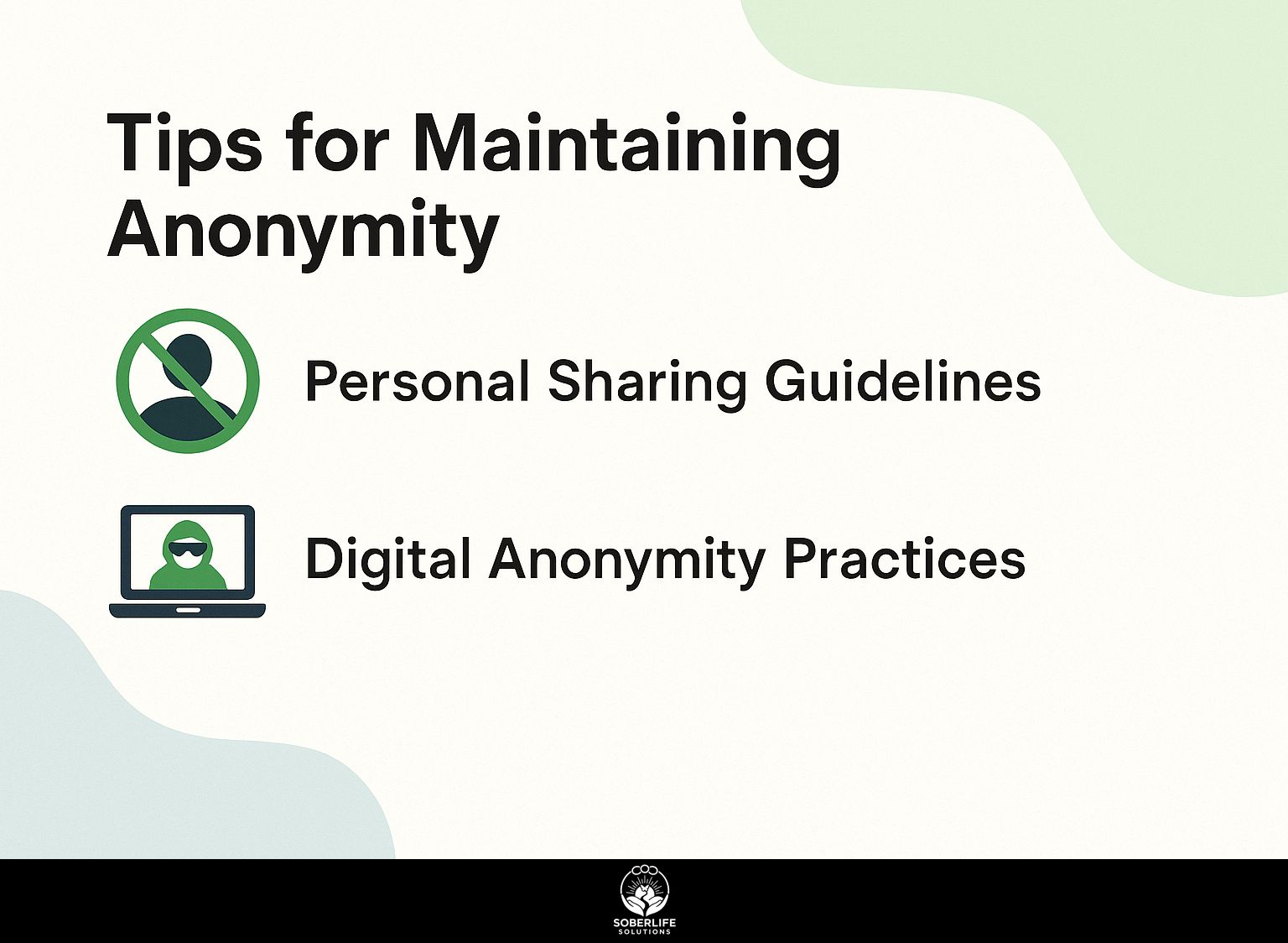
Staying anonymous needs careful attention from members, especially when sharing personal information and interacting online in the AA community. For those interested in enhancing their understanding of privacy measures, you might find it beneficial to check out the OIAA Safety Resources: Overview and Key Guidelines.
Personal Sharing Guidelines
Members should adhere to guidelines for personal sharing, such as avoiding the use of last names and sharing only what is comfortable in group settings.
To build a space where people feel trusted and respected, try using clear and honest communication methods.
For instance, when discussing personal experiences, focus on general themes rather than specifics. Phrasing like ‘I experienced something similar’ instead of detailing your own history can keep conversations appropriate.
Using a ‘pause and check-in’ method-where participants briefly assess if they feel comfortable with the direction of the conversation-encourages ongoing confidentiality and respect among members.
Digital Anonymity Practices
Today, people can use tools like the Reframe app to stay in touch and keep their identities protected through safe and private communication.
To maintain anonymity online, consider using pseudonyms and encrypted messaging apps like Signal or Telegram.
Participating in forums like the Anonymous Reddit or 4chan allows for interaction without revealing personal information.
Always use a VPN, such as NordVPN or ExpressVPN, for an extra layer of security while browsing.
Be careful when sharing personal information, even on platforms that appear safe, to keep your online presence private.
Best Practices for Groups
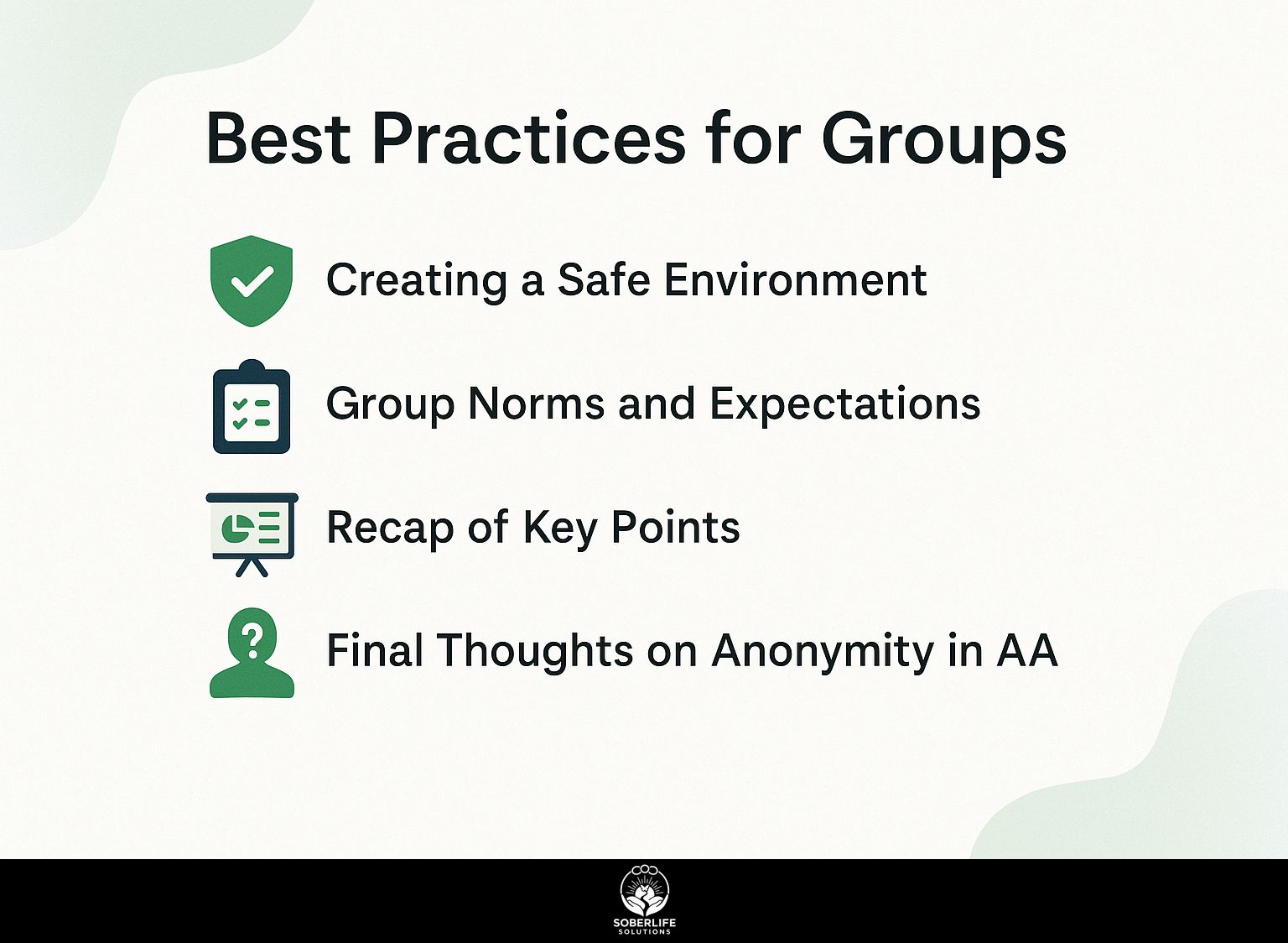
Creating an environment where people can remain anonymous involves establishing rules so that everyone feels safe and respected. If you’re interested in understanding more about the advantages of such supportive environments, consider exploring the insights shared in our article on peer support groups.
Creating a Safe Environment
Facilitators should establish ground rules that promote a safe and welcoming environment for all members participating in AA meetings.
Effective ground rules involve asking each person to speak freely without interruptions, keeping discussions private to build trust, and focusing on listening with respect.
Facilitators can implement a ‘no cross-talk’ rule, which prevents members from responding to one another during personal shares.
A helpful checklist for facilitators might include:
- Clearly articulate ground rules at the beginning of each meeting;
- Remind members about the importance of confidentiality;
- Frequently ask for opinions on how the meeting feels to make things better over time.
Group Norms and Expectations
Simple and clear rules make sure anonymity is respected and help create a united group environment.
To establish these norms, begin with regular discussions that allow members to voice their expectations and concerns regarding anonymity. For instance, set aside the first meeting of each month to revisit this topic.
Choose a reliable person, like the team leader, to guide these discussions and make sure everyone feels comfortable speaking. This servant can also remind members of the significance of confidentiality before each session, reinforcing the group’s commitment to anonymity.
Over time, these consistent practices will solidify a culture of trust and respect.
Recap of Key Points
The main ideas explain what anonymity means in AA, why it helps build trust, and the common misunderstandings that may happen.
Anonymity in Alcoholics Anonymous (AA) serves as a protective barrier that allows individuals to open up without fear of judgment. This confidentiality helps build a supportive community, where members can share experiences and challenges freely.
Misconceptions include the belief that anonymity promotes secrecy, which can hinder accountability. To strengthen this concept, facilitators can organize workshops that explain the reasons for anonymity and promote open conversations about how it helps in recovery.
Engaging in role-playing scenarios can also help members recognize the balance between transparency and confidentiality.
Final Thoughts on Anonymity in AA
Anonymity protects personal privacy and helps the AA community heal together.
Members are encouraged to talk about their challenges openly, promoting a supportive space that helps with recovery.
For instance, participants might discuss their experiences during meetings, using pseudonyms to maintain discretion while connecting deeply with others. Online platforms like Zoom and forums offer a virtual safe space for sharing, allowing individuals from around the globe to participate.
People find it easier to trust each other and form tighter bonds when they can share experiences anonymously, resulting in a better support network for all participants.
Frequently Asked Questions
What is the importance of anonymity in AA?
Anonymity is a core principle in AA that allows individuals to feel safe and protected while sharing their personal experiences with alcoholism and recovery. It also helps to avoid judgment and maintain confidentiality.
How can maintaining anonymity benefit an individual in AA?
By maintaining anonymity, individuals can focus on their own recovery without the pressure of others knowing their identity or past struggles. It also promotes a sense of equality among members, regardless of their background or social status.
Are there any tips for maintaining anonymity in AA?
Yes, some tips include avoiding using last names or specific details in discussions, avoiding sharing personal stories outside of meetings, and respecting the anonymity of others.
Can anonymity be broken in AA?
Yes, anonymity can be broken if an individual shares information about themselves or others without their consent. It is important to respect the anonymity of all members to maintain a safe and trusting environment.
What are some best practices for protecting anonymity in AA?
Good habits include using only first names or initials when introducing yourself, not taking photos or recordings during meetings, and not talking about other members’ identities or stories outside of meetings.
Is anonymity only important in AA meetings?
No, anonymity is also important in other aspects of AA, such as sponsorship and service positions. It is important to protect the privacy of people in all interactions related to AA to create a feeling of safety and trust.

